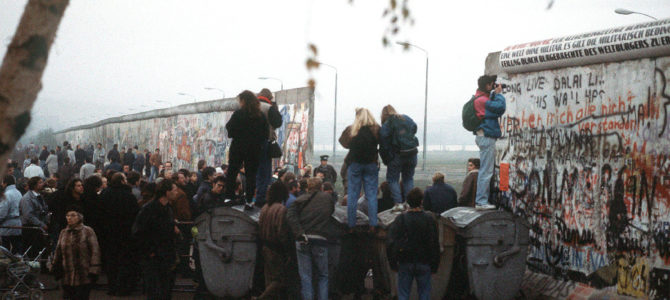
Francis Fukuyama got quite a bit wrong in his 1992 essay “The End of History,” but he also got a lot right, especially in regard to the roughly 25-year period between the fall of the Soviet Union and the election of Donald Trump. A neoliberal world order led by the United States did emerge in the 1990s to become, if not a hegemonic power, at the least the dominant one. Capitalism was not only on the rise but promised to liberalize nations like Russian, and especially China.
With the election of Trump and the success of socialists like Sen. Bernie Sanders and Rep. Alexandria Ocasio-Cortez the future of the American-led, bipartisan, neoliberal world order is in considerable doubt. In fact, breaking with this world order was central to Trump’s appeal and victory. On trade, military actions, and foreign aid, Trump challenged basic assumptions held by the leaderships of both parties for decades.
Not everyone was on board back in the early 1990s. Ross Perot’s historic performance as the Reform Party candidate in the 1992 general election was rooted almost exclusively in the fact that he was the candidate who opposed the globalism and trade deals that both George HW Bush and Bill Clinton tacitly supported. That voting base never really went away, and a quarter-century later it did the heavy lifting in putting Trump in the White House.
The central theme of Trump’s ideology towards the United States’ relationship with the rest of the world is that we are being taken advantage of. In the post-Cold War era the United States took on an enormous burden in exchange for dominant influence. It was the patriarchal nation not just of the free world, but of almost the entire world. It was a generous parent, often providing extravagant allowances to its client states.
In some ways, this paradigm was wildly successful. Poverty rates globally declined dramatically. Here in the United States commercial goods became remarkably cheap, giving the middle class, and even the poor in some cases, access to material wealth that would have seemed extravagant in the Cold War period, like flat-screen TVs and cell phones. And for a time, it did appear that a relaxed approach to nations like Russia and China would inevitably lead to their liberalization.
But as corporations, and in fairness many American citizens, profited from the neoliberal order, its support in the upper echelon of both parties and almost all of the media led to significant blind spots that Trump, and other populists around the Western world, began to exploit. There are never winners without some losers. What Trump, as well as Brexiters in the United Kingdom, seized on was that many, many people feel the successes of globalism came at their expense.
While the phrase “learn to code” was offensive enough to get people banned from Twitter when addressing it to fired journalists, the idea of switching blue-collar workers into tech jobs was in fact a staple of the neoliberal program under Clinton, Bush, and Obama. The phrase “these jobs aren’t coming back” was treated as holy gospel. Trump’s heresy, whether reasonable or not, was that the jobs could come back, and it was a big reason he won the presidency.
Another big reason is that the magnanimous habit the United States had established of picking up the check all over the world has lost some of its appeal as it has become clearer that it is not a magic pill that will turn the whole globe into liberal, capitalist democracies. Trump’s brand of America First nationalism represented what had begun to feel to many on the right like an undue burden. Meanwhile, much of the left has such contempt for the United States and what they view as our colonialism, or imperialism, that they too tend towards a more isolationist position.
I will not be as bold as Fukuyama was as the sun set on the Soviets. I do not think we have enough information to know what this new global order will look like. But there are a few hints. The practices of China — in trade, in the Hong Kong crackdown, in their broad attempts to influence and control Africa, and in their concentration camps — has created a situation in which they must become the new great rival of America. Russia will try to make this a trilateral balance, but at the end of the day, it will likely be America and China squaring off.
We also know one element that is not likely to change much: the United States will remain the predominant military power in the world. Even if the U.S. military’s global footprint is reduced, and it might not be, its power will remain.
A lot of mistakes were made during the post-Cold War Period, it was far from perfect, but it certainly wasn’t all bad. Trump’s election will bring new rules, a new order. Even if he loses in 2020, he has changed some very basic assumptions about how the United States behaves in the world.









